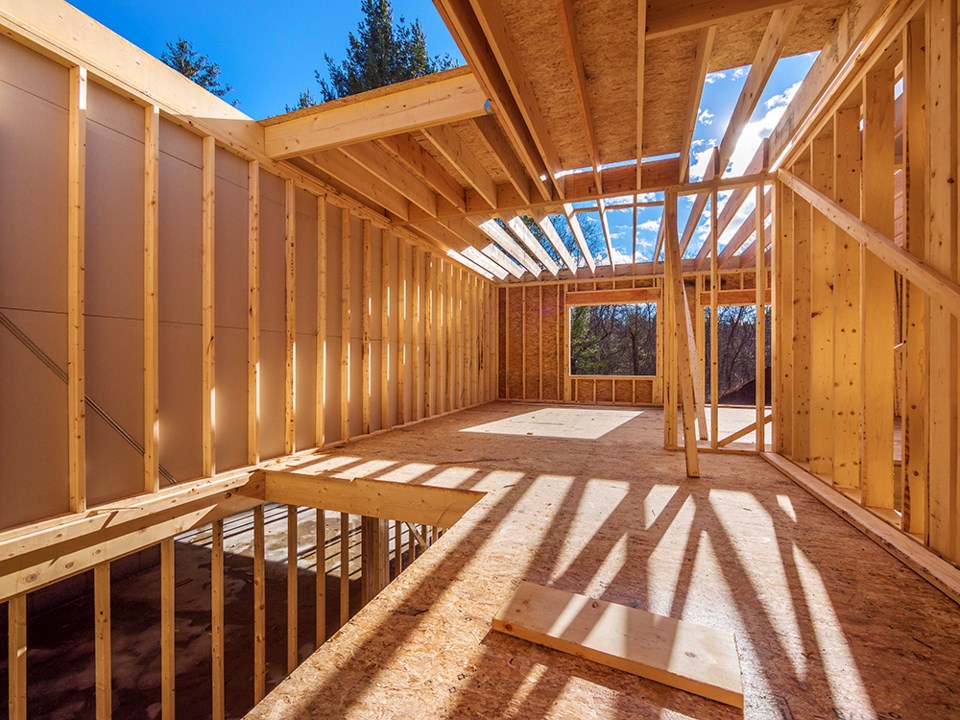THUNDER BAY – Thunder Bay’s city council has approved an ambitious housing pledge, committing to see 2,200 new housing units built by 2031 – even after learning the commitment isn't needed to be eligible for millions in provincial funding.
City staff advised council they'd received a letter from Minister of Municipal Affairs and Housing Paul Calandra just hours earlier on Monday indicating council’s approval of the pledge is not needed to access the three-year, $1.2-billion "Building Faster Fund," which can be used to incentivize housing.
The Ford government now says Mayor Ken Boshcoff’s endorsement of the target, made along with his request last month for "strong mayor" powers, would be sufficient.
The development was the latest in a provincial process that's meant to push cities to do more to support housing growth, but has also frustrated many municipal leaders over unclear and changing details and the connection to the new mayoral powers.
The province announced the Building Faster Fund this year as part of efforts to see 1.5 million new housing units built in the face of limited supply that has fuelled surging home prices.
The city previously believed it had to submit a council-approved pledge to meet its 2,200-unit target by Dec. 15 to be eligible for funding.
Meeting the target by 2031 would require the pace of local home construction to pick up by over 60 per cent compared with the past five years.
Leaders including Boshcoff have argued a regional mining boom could put the target within reach, while others have suggested it may be unachievable.
“I really want to affirm to the public now that this is real – this is not any kind of sales pitch,” Boshcoff said Monday. “I think this council was elected at the right time to be part of a very strong resurgence of our community.”
Director of development services Joel DePeuter reported encouraging progress Monday, telling council the city has awarded building permits for 280 units so far in 2023, well above the five-year average of 175 and on track to exceed this year's provincial target.
He has previously cautioned this year's housing numbers have been boosted by an "unusual" 50-unit apartment, but nonetheless expressed optimism they're part of an upward trend.
Staff estimate the city would be in line for somewhere in the neighbourhood of $587,000 per year over three years if it achieves the target, and could receive more for exceeding it.
That's pocket change compared to the funding the city hopes could be available through the federal housing accelerator, city leaders noted.
"I’m struggling a bit with my own expectations of this," said Coun. Andrew Foulds of the provincial program. "The reality is we’re only potentially eligible for just south of $600,000 [a year]. That’s not building any new roads. I’ll take it, but how is this going to get more houses built?"
The city will consider creating financial incentives for additional units and affordable builds using the funds, said DePeuter.
The province tied its housing targets for cities to the controversial imposition of “strong mayor” powers, which Boshcoff requested last month, and is set to receive as of Oct. 31.
That will grant him sweeping authority to hire and fire city staff, propose the city budget, and in some cases pass or veto bylaws with the support of just one third of council.
Councillors overwhelmingly rejected Boshcoff’s move, with most arguing the changes put too much power in the hands of one person, but are powerless to stop it.
A staff report suggested reaching Thunder Bay’s housing target “will be challenging and require a coordinated and consultative community effort.”
Staff pointed out the city has only limited power to influence housing supply, saying important factors from inflation and interest rates to supply chain issues and labour supply lie outside of its control.
While the Building Faster fund could subsidize city infrastructure to support new subdivisions, city staff emphasized their assessment the target can likely be achieved largely – if not entirely – through infill of already-serviced areas and building in existing or planned subdivisions.
“Generally speaking, it’s in the city’s best interest to fill gaps in services prior to extending services,” said DePeuter.
The city reported there are already 900 lots available through existing registered and draft plans of subdivision, while new apartment and condominium blocks could account for a total of over 2,000 units.
A housing land needs study the city is currently undertaking will provide a more detailed overview of land and housing availability, and the role infill can play.
The city also pointed to actions it’s already taken to support housing development, like updating its zoning bylaw, considering the sale of city land for development, and ordering a secondary plan for the Parkdale area.
Coun. Shelby Ch'ng asked how the conversion of rental housing to short-term rentals like Airbnb is impacting housing availability, saying she estimates there are around 400 available on Thunder Bay's market at any given time.
City manager Norm Gale called it an important issue, but one that would take "a boatload of work" to address.
"We have competing priorities and we are looking at it now, and moving forward on this will require council direction," he said.
